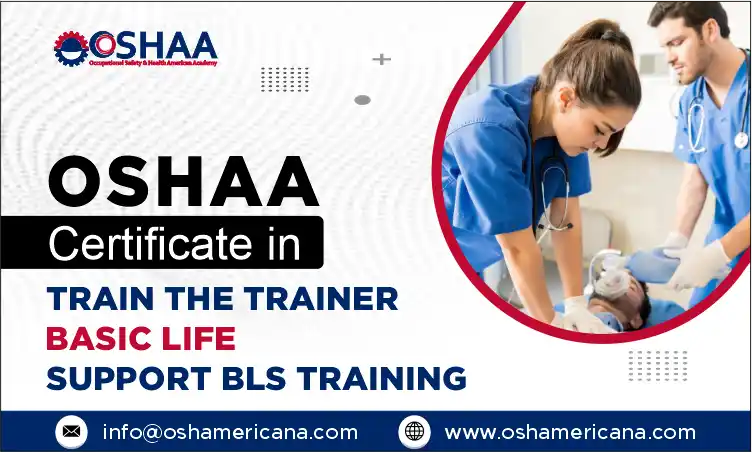Understanding and supporting the early stages of a child’s development is essential for laying the foundation of lifelong learning, emotional wellbeing, and healthy social behaviour. The OSHAA 30-Hours Professional Diploma in Early Childhood Developmental Needs has been thoughtfully designed to equip individuals with the knowledge and practical tools needed to address the core developmental requirements of children during their most formative years.
The early years of a child’s life are a period of rapid growth and transformation. From cognitive development and emotional regulation to motor skills and language acquisition, children experience a wide range of milestones that shape their future. Recognising and responding to these needs effectively helps foster resilience, self-confidence, and long-term success in education and personal development.
Developed by the Occupational Safety, Health and Awareness Association (OSHAA), this 30-hour professional diploma offers a flexible, online learning experience tailored for educators, carers, and professionals working with young children. The course combines theoretical knowledge with practical application, preparing participants to meet a wide range of early developmental needs.
The OSHAA 30-Hours Professional Diploma in Early Childhood Developmental Needs is an invaluable resource for anyone committed to supporting the holistic growth of young children. By investing in this training, participants will be better equipped to foster nurturing environments, support developmental progress, and positively impact children’s lives during their most critical years.
OSHAA 30-Hours Professional Diploma in Early Childhood Developmental Needs
Study Units
Learning Outcomes
Introduction to Early Childhood Development (3 hours)
- Understand the key stages and milestones in early childhood development
- Recognise the importance of early years in shaping lifelong learning and behaviour
- Identify the main developmental theories and their applications in early childhood
- Develop an awareness of factors influencing development, including genetics and environment
Physical Growth and Motor Skill Development (3 hours)
- Learn the stages of physical growth in early childhood
- Understand the development of both fine and gross motor skills
- Identify common motor milestones and their significance in child development
- Recognise signs of delayed motor skills and strategies for supporting physical growth
Cognitive Development and Learning Foundations (4 hours)
- Understand the cognitive development process in young children
- Recognise how children acquire and process information
- Identify factors that influence cognitive growth, including play, interaction, and environment
- Apply strategies to support cognitive development in a learning environment
Emotional and Social Development in Early Years (4 hours)
- Explore key concepts in emotional and social development during early childhood
- Understand how children form relationships and learn social norms
- Identify signs of emotional or social difficulties and how to support children in these areas
- Develop strategies to encourage positive social interactions and emotional regulation
Language Acquisition and Communication Skills (5 hours)
- Understand the stages of language development in children
- Identify common challenges in language acquisition and communication
- Explore the role of caregivers and educators in fostering language skills
- Develop strategies to support language development and enhance communication in early years
Understanding Behaviour and Supporting Positive Guidance (5 hours)
- Understand the factors that influence behaviour in young children
- Learn how to observe and assess behavioural patterns
- Develop effective strategies for guiding behaviour in a positive, supportive manner
- Explore approaches to managing challenging behaviours in a constructive way
Identifying Developmental Delays and Special Educational Needs (4 hours)
- Learn to recognise signs of developmental delays and special educational needs (SEN)
- Understand the common types of developmental delays and their implications
- Develop strategies for early intervention and support for children with SEN
- Familiarise with referral processes and working with professionals to support development
Creating Inclusive and Stimulating Learning Environments (2 hours)
- Learn how to design learning environments that are inclusive and supportive of all children
- Understand the importance of creating a stimulating environment that promotes exploration and learning
- Develop strategies for adapting environments to meet diverse developmental needs
- Foster a positive, engaging atmosphere that supports the holistic development of every child
- Gain a comprehensive understanding of the key developmental stages in early childhood
- Learn to identify and address developmental challenges in physical, cognitive, emotional, and social domains
- Equip yourself with practical strategies to support children’s learning, growth, and wellbeing
- Develop the skills to create inclusive and stimulating environments that promote development
- Enhance your ability to recognise developmental delays and provide early intervention
- Strengthen your approach to fostering positive behaviour and social interactions in young children
- Improve your knowledge of language acquisition and how to support communication skills in early years
- Build confidence in working with children, families, and communities to support developmental progress
- Gain a professionally recognised qualification that enhances your career prospects in early childhood education and care
- Contribute positively to the growth and future success of children through informed, child-centred practices
The OSHAA 30-Hours Professional Diploma in Early Childhood Developmental Needs is designed for individuals who work with young children or are interested in supporting their developmental journey. This course is ideal for:
- Nursery and early years educators
- Childminders, nannies, and daycare providers
- Teaching assistants and support staff in early years settings
- Social workers and family support professionals
- Foster carers and adoptive parents
- Educational psychologists and child development specialists
- Healthcare professionals working with children
- Parents and guardians looking to enhance their understanding of child development
- Aspiring professionals entering the field of early childhood education
This course is suitable for both beginners and those with prior experience in childcare or education, offering practical insights and tools for improving children’s developmental outcomes.







